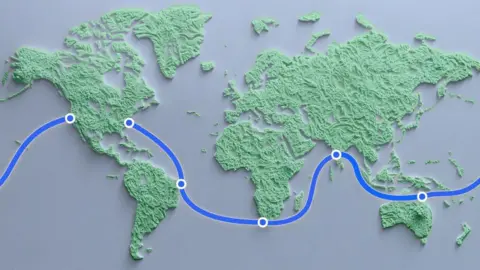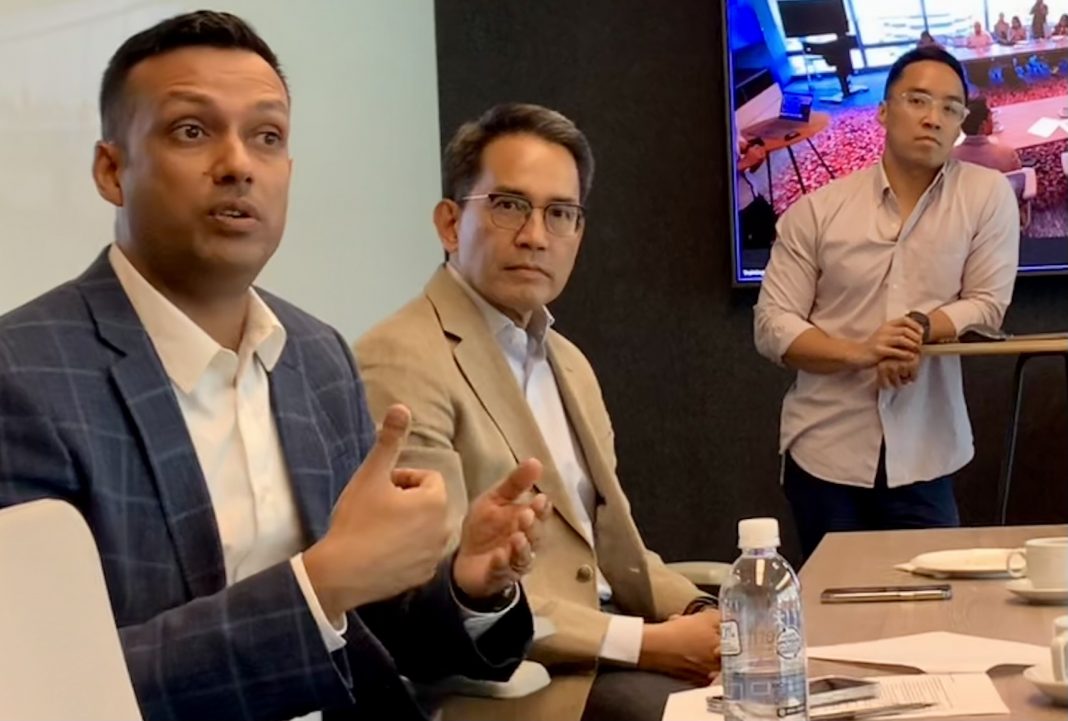Meta Unveils Plan for Global Undersea Internet Cable
Meta is launching Project Waterworth, a 50,000 km undersea cable to connect key regions like the US, India, South Africa, and Brazil. The project aims to enhance global connectivity, support AI advancements, and foster economic cooperation, becoming the longest underwater cable to date.

Meta has revealed its plans to construct a 50,000 km (31,000 miles) undersea cable, set to span across multiple regions globally. The project, named Project Waterworth, aims to connect the US, India, South Africa, Brazil, and other areas, making it the longest underwater cable project upon completion.

As the parent company of Facebook, Instagram, and WhatsApp, Meta continues to expand its reach beyond social media, venturing into areas like artificial intelligence (AI) and the infrastructure that supports it. This new cable project is expected to offer "industry-leading connectivity" to five major continents, enhancing Meta’s AI initiatives.
According to Meta, the cable will promote economic cooperation, digital inclusion, and technological development in the regions it serves. It will feature a 24-fiber-pair system, increasing its capacity to handle higher traffic compared to existing cables.
Undersea cables are critical to digital services and transferring data at high speeds, with over 95% of the world’s internet traffic relying on them. Currently, there are more than 600 known sub-sea cable systems globally, including the 2Africa cable, supported by Meta and several mobile network operators, linking three continents across 45,000 km.
In recent years, major tech companies like Google have invested heavily in building sub-sea cables. Google, for example, announced plans for the first cable connecting Africa to Australia, along with a $1 billion investment in two new cables for Japan’s connectivity.
The growing role of tech companies in financing and constructing these cables reflects their increasing dominance in the digital infrastructure space, shifting from traditional telecom providers who once controlled these projects. Experts note that this shift raises concerns about the concentration of power in the hands of big tech, which could affect global digital markets.
With the rising importance of undersea cables, their security has become a key concern. Meta's Project Waterworth will involve deep-sea installation and advanced burial methods in high-risk areas, ensuring protection from potential threats like ship anchors. However, geopolitical tensions over such infrastructure have led to heightened surveillance, as seen with NATO’s recent mission to monitor ships in the Baltic Sea.
By skipping Europe and China and avoiding regions like the Suez Canal and the South China Sea, Project Waterworth aims to mitigate risks while connecting the US to emerging markets in the Southern Hemisphere. This strategic move could strengthen US influence in global economic and infrastructural development.
Source: https://www.bbc.com/news/articles/ckgrgz8271go
What's Your Reaction?












/https://tf-cmsv2-smithsonianmag-media.s3.amazonaws.com/filer_public/54/66/546650fa-26a4-40fd-8d6d-5a7a04540f81/rosetta2.png)
:max_bytes(150000):strip_icc():focal(999x0:1001x2)/robert-prevost-050825-1-39395418ab494da5a3a700c9478e66c8.jpg)















































format(webp))
format(webp))


























